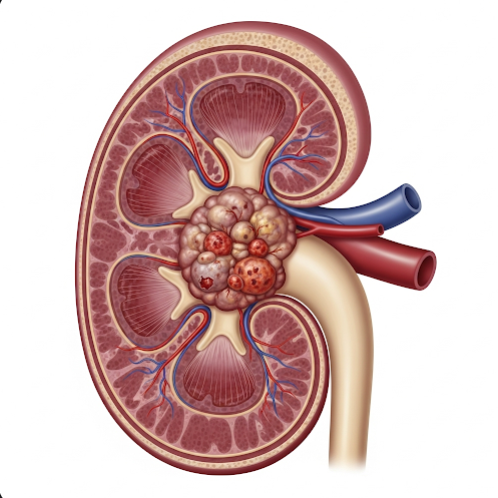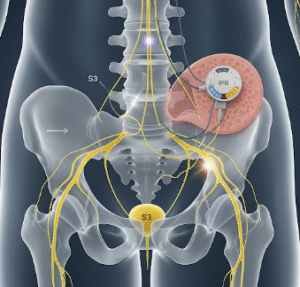Overview
A kidney tumor refers to an abnormal growth of cells in the kidney. While some kidney tumors are benign (non-cancerous), many are malignant and classified as kidney cancers, with renal cell carcinoma (RCC) being the most common. Kidney tumors can vary in size and behavior, sometimes causing symptoms or discovered incidentally during imaging. Korea offers advanced diagnostic modalities and cutting-edge treatments, including minimally invasive surgery, ablation therapies, and systemic treatments, tailored to tumor type and stage for optimal patient outcomes.
What Is a Kidney Tumor?
A kidney tumor is any abnormal mass arising within the kidney. Tumors can be:
- Benign tumors: such as oncocytomas and angiomyolipomas, which typically do not spread and may require monitoring or removal if symptomatic.
- Malignant tumors: primarily renal cell carcinoma, which originates from the kidney’s tubule lining and can invade surrounding tissues or metastasize. Less common malignant tumors include transitional cell carcinoma and Wilms tumor (mainly in children).
Kidney tumors can disrupt normal kidney function and may cause symptoms depending on their size and location.
Symptoms
Many kidney tumors remain asymptomatic and are discovered incidentally. When symptoms occur, they may include:
- Blood in the urine (hematuria)
- Flank or abdominal pain
- Palpable mass or lump in the abdomen or side
- Unexplained weight loss and fatigue
- Fever not linked to infection
- High blood pressure due to kidney involvement
- Swelling in legs or ankles from fluid retention
Causes
Exact causes of kidney tumors are unclear but involve a combination of genetic mutations and environmental factors:
- Mutations in genes regulating cell growth and division
- Exposure to carcinogens such as tobacco smoke, certain chemicals, and heavy metals
- Chronic kidney diseases or cystic kidney disorders
- Obesity and hypertension contributing to cellular stress
- Inherited syndromes such as von Hippel-Lindau disease
Risk Factors
- Smoking, significantly increasing risk
- Male gender, with higher incidence in men
- Age over 50 years, risk increases with age
- Obesity and poor diet
- Hypertension and certain medications
- Family history of kidney cancer or genetic conditions
- Occupational exposure to chemicals like asbestos or cadmium
Complications
- Local invasion of surrounding tissues causing pain and organ dysfunction
- Metastasis to lungs, bones, liver, and brain
- Kidney failure due to impaired function or surgical removal
- Paraneoplastic syndromes causing systemic symptoms such as anemia or high calcium levels
- Recurrence after treatment requiring further intervention
Prevention
- Avoiding smoking and exposure to harmful chemicals
- Maintaining healthy weight and blood pressure control
- Regular medical checkups and imaging for high-risk individuals
- Genetic counseling for families with hereditary risks
- Healthy diet rich in fruits, vegetables, and low in processed foods
Treatment Options in Korea
Korean medical centers provide state-of-the-art diagnosis and treatment for kidney tumors:
- Imaging and Biopsy: High-resolution ultrasound, CT scans, MRI, and percutaneous biopsy to classify tumor type and stage.
- Surgical Options:
- Partial Nephrectomy: Removal of tumor while sparing healthy kidney tissue, preferred for small or localized tumors.
- Radical Nephrectomy: Complete removal of the kidney, sometimes with adrenal gland and lymph nodes, for larger or invasive tumors.
- Minimally invasive approaches including laparoscopic and robotic-assisted surgeries reduce recovery time.
- Ablative Therapies: Techniques such as radiofrequency ablation (RFA) or cryoablation destroy small tumors without major surgery.
- Systemic Therapies: Targeted therapies and immunotherapies for advanced or metastatic kidney tumors, including tyrosine kinase inhibitors and immune checkpoint inhibitors.
- Multidisciplinary Care: Integration of oncology, urology, radiology, and supportive care teams for personalized treatment plans.
- Follow-Up and Surveillance: Regular imaging and lab tests to monitor for recurrence or progression.
Korea’s focus on early detection, precision medicine, and minimally invasive treatment options has significantly improved survival and quality of life for patients with kidney tumors.













